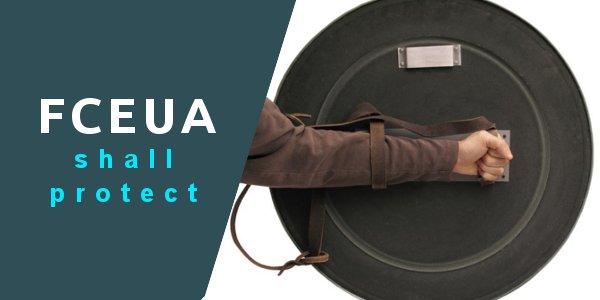Introduction
Many of us have heard about the Fair Debt Collection Practices Act (FDCPA), a statute that poses very strong guidelines towards the debt collection industry. However, how many of you are aware of its Pennsylvania counterpart, the Fair Credit Extension Uniformity Act (FCEUA), which imposes similar restrictions upon debt collectors? You can explore more at 73 P.S § 2270.1 et seq.
Definitions
Under the FCEUA, a Pennsylvania resident who owes or is alleged to owe a debt is referred to as a ‘Consumer’. Whereas, a ‘Creditor’ is someone (a person or business, including employees and agents working under it) to whom a debt is owed.
A ‘Debt’ is either a veritable or alleged obligation incurred due to purchase, lease, or loan of goods, services or personal property for personal, family, or household purposes. While the definition doesn’t include taxes owed to the United States or Pennsylvania, you are obligated to repay taxes, interest and penalties owed to the political subdivisions.
Now, as we already know that the FCEUA applies to creditors and certain types of debt, we will go ahead and discuss what Acts or practices are considered deceptive or illegal and for which a creditor can be prosecuted.
Note: While the Fair Credit Extension Uniformity Act (FCEUA) of Pennsylvania is mainly applicable for persons or businesses collecting their own debts, the Fair Debt Collection Practices Act (FDCPA) applies mainly to those persons or businesses who are collection agencies or collect debts for others.
Prohibitions
As per the Act, the following prohibitions apply to the creditors.
A. “Unfair or Deceptive Acts or Practices”
1. As per the Act, a creditor, while communicating with a 3rd party to get location information of the debtor, 73 P.S. § 2270.4(b)(1)
- must provide identity, however, can’t state the name of the creditor if not requested;
- can’t reveal that the consumer owes a debt;
- can’t send postcards or envelopes that reveal that the consumer owes a debt;
- can’t contact more than once (exceptions are there, but for very limited circumstances);
- must communicate with only the lawyer if he/she knows that the debtor is represented.
2. Any communication with the debtor 73 P.S. § 2270.4(b)(2)
- must only be made between 8 am to 9 pm;
- must not be done in unusual places or time;
- must only be done through the attorney if the debtor is represented;
- can’t be done at the debtor’s place of employment if the employer prohibits it;
- can’t be done via postcards or envelopes that show a debt is owed. 73 P.S. 2270.4(b)(6)
B. “Harass, Oppress or Abuse” 73 P.S. § 2270.4(b)(4).
- Use or threat of use of violence or other criminal and illegal means the harm the debtor, his/her property or reputation
- Use of profane, offensive or obscene language
- Calling repeatedly or frequently
- Calling without meaningful disclosure of identity
C. “False, Deceptive or Misleading Representations or Means” 73 P.S. § 2270.4(b)(5).
As per the act, a creditor, while communicating with the debtor, cannot
- Suggest himself/herself as ‘color of law’ or government body;
- Misstate character, amount or legal status of the debt;
- Falsely imply himself/herself to be an attorney;
- Represent or imply that nonpayment of the debt will result in arrest or captivity or the seizure or sale of any property if not such a step is lawful and the creditor is willing to take such a measure;
- Threaten or take any action that he/she doesn’t intend to or is illegal;
- Represent that transfer of debt to a legal department, attorney or collection agency will cause the debtor to lose rights or defenses;
- Allege that the debtor committed a crime or fraud by defaulting;
- Threaten that the creditor will report false information to a credit bureau.
D. “Unfair or unconscionable means” 73 P.S. § 2270.4(b)(6)
- Collection of any surplus amount that doesn’t comply by the primary debt agreement
- Solicitation of any postdated checks that doesn’t meet the requirements of FCEUA
Conclusion
Violation of FCEUA is also a violation of Pennsylvania’s Unfair Trade Practices and Consumer Protection Law at 73 P.S. § 201-9.2, which offers you actual damages or $100 for each violation (whichever is higher). Also, the court has the discretionary rights to award the debtor threefold damages, costs, and reasonable attorney fees.









